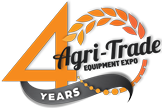If you work in agriculture, logistics, or any industry that relies on accurate weight measurements, you already know how crucial reliable scales are. But did you know that regular scale certification is required in certain trade sectors to ensure compliance and maintain accuracy? Whether you’re weighing livestock, grain, or industrial products, certification helps guarantee your readings are precise and meet Canadian regulations.
In this article, we’ll explain what is scale certification, why it matters, and how it fits into your operation’s maintenance routine.
What is Scale Certification?
Scale certification is the official verification that your weighing equipment is accurate and consistent. In Canada, scales must meet strict Measurement Canada standards to ensure fairness in trade, safety, and efficiency.
Not every business requires certification, but for those in agriculture, mining, construction, and shipping, it’s often mandatory. For example:
- Livestock scales only need to be certified once.
- Grain scales require certification every two years (or annually under the Grain Commission).
- Grocery store scales must be recertified every five years.
Using uncertified or inaccurate scales in regulated sectors can lead to costly errors, compliance penalties, and even safety risks.
The Scale Certification Process
The certification process ensures your equipment meets all accuracy standards. Here’s how it typically works:
- Inspection – A qualified technician checks for visible damage, corrosion, or misalignment.
- Calibration – The scale is tested with known, government-certified weights and adjusted if necessary to ensure accuracy.
- Certification – Once the scale passes testing, it’s officially certified for a set period—often one year—before re-certification is required.
What is Scale Calibration?
Over time, even high-quality scales can lose precision due to wear and tear—especially on internal components like load cells. Calibration restores accuracy by testing and adjusting the scale against certified weights.
While calibration doesn’t repair mechanical damage, it helps maintain reliable, consistent performance and prevents issues like drifting or erratic readings. Most businesses recalibrate their scales annually, though high-use or regulated industries may do so more often.
Scale Calibration Process
Calibration involves several key steps:
- Initial Inspection – The technician checks for physical or structural issues that could impact readings.
- Functional Testing – Certified weights are applied to test the scale’s performance across its range.
- Measurement Verification – Multiple weighings ensure accuracy, consistency, and proper response time.
- Calibration Adjustment – The technician fine-tunes readings from zero to maximum capacity for optimal accuracy.
Sometimes, minor repairs are required if components are worn or misaligned before accurate calibration can be achieved.
Calibration vs. Certification: What’s the Difference?
Scale calibration and scale certification are closely related but serve different purposes:
- Calibration is a maintenance process, performed regularly to keep your scale accurate.
- Certification is a compliance process, confirming that the calibrated scale meets Measurement Canada standards.
All certified scales must first be calibrated—but not every calibrated scale requires certification. The frequency of certification depends on your industry’s regulations and how your scales are used.
Why Scale Calibration Matters for Certification
In Alberta, certified scale calibration is a key step before certification. It ensures the scale provides correct readings by compensating for wear, environmental conditions, and regular use. At Western/Accurate Scale, our certified technicians perform these calibrations using standardized methods that meet federal accuracy requirements.
Once calibrated, your scale can be officially certified—giving you confidence that your measurements are both accurate and legally compliant.
How Often Should You Certify Your Scale?
The required certification frequency depends on factors such as usage, environment, and industry standards. Between certifications, regular maintenance and calibration help extend your scale’s lifespan and minimize downtime from inaccurate readings.
Customizable Solutions for Precise Animal Weighing
Accurate/Western Scale provides customizable livestock scales—including cow scales and scale bars—designed for precise, reliable weighing. Our systems make it easy to track animal health by correlating weight changes with health indicators across single or multiple animals.
Certify or Rent a Scale with Confidence
Whether you need to certify your existing scale or rent a certified scale for temporary use, Accurate/Western Scale has you covered. Our certified technicians ensure every scale meets Measurement Canada standards for accuracy and compliance. So, what is scale certification? It’s an important step to keeping your operation safe and compliant.
Get in touch today to schedule your certification or explore rental options—so you can weigh with confidence, precision, and peace of mind.
Contact Accurate/Western Scale today to get started!

